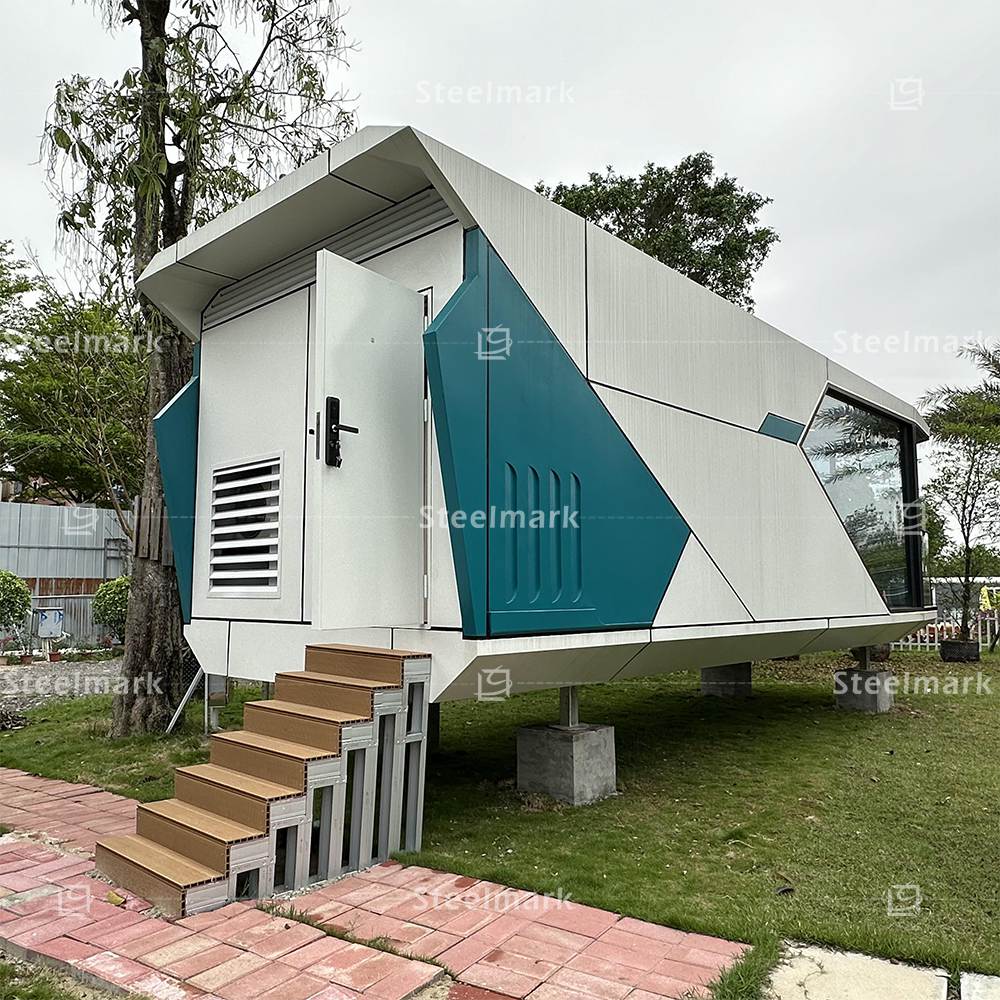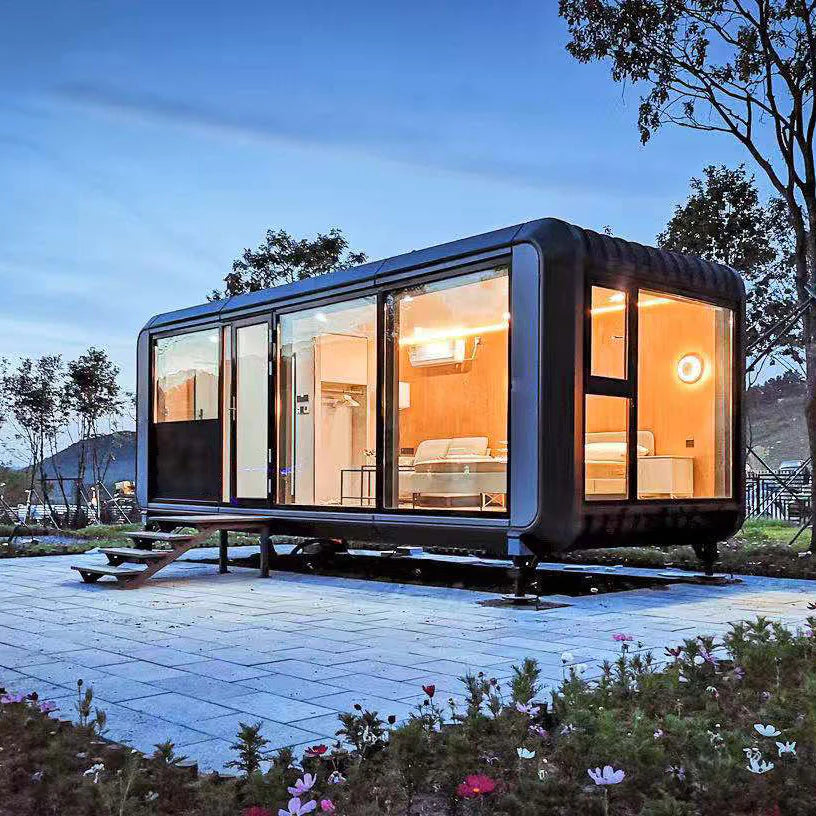Why Modular Houses Are the Future of Sustainable Living
Modular homes are significantly identified as an essential option for sustainable living, providing a mix of efficiency, cost-effectiveness, and ecological benefits. Their building and construction in controlled settings dramatically minimizes waste and improves precision, while the potential for including sophisticated energy-efficient systems positions them as a forward-thinking choice in housing. The versatility of modular styles permits for the integration of lasting modern technologies and products customized to private needs. As we navigate the difficulties of urbanization and environmental sustainability, one must take into consideration just how these homes might redefine our approach to living spaces.
Ecological Benefits of Modular Homes
The ecological benefits of modular homes represent a substantial action toward sustainable living. These homes are created in controlled manufacturing facility setups, which dramatically reduces waste produced throughout the building process. By maximizing materials and reducing excess, modular construction contributes to an extra reliable use sources compared to conventional building approaches.
Additionally, modular homes are commonly made with energy efficiency in mind. Lots of integrate innovative insulation strategies, energy-efficient windows, and sustainable materials, adding to reduced power intake. This can result in decreased greenhouse gas discharges over the life-span of the home, boosting its general environmental account.
The ability to transportation and construct modular components on-site additionally reduces the carbon impact related to building and construction logistics. In addition, several modular homes are constructed to be versatile and quickly upgradeable, permitting property owners to carry out lasting technologies, such as solar panels and energy-efficient heater, over time.
Ultimately, the environmental benefits of modular homes not only promote sustainable living but likewise motivate an even more liable method to real estate development, aligning with global efforts to battle environment modification and maintain all-natural resources for future generations.
Cost-Effectiveness and Price
Structure a home typically stands for among the biggest monetary investments individuals make in their life time, and modular homes use an engaging service for those looking for cost-effectiveness and cost. Among the key advantages of modular homes is their reduced construction prices contrasted to traditional site-built homes. The streamlined manufacturing process enables substantial savings on labor and products, which translates to lower prices for consumers.
In addition, modular homes normally have shorter building and construction timelines. This not just lowers expenses connected to funding and insurance coverage yet additionally minimizes the threats linked with inflation and fluctuating market conditions. Many customers discover that modular homes can be customized to fit their budget plans without compromising top quality or layout.
Additionally, energy efficiency is often constructed into the design of modular homes, resulting in lowered utility expenses gradually. Several manufacturers prioritize sustainable materials and practices, even more boosting the long-lasting financial stability of these homes. Overall, the combination of preliminary cost financial savings, fast building and construction, and recurring energy effectiveness makes modular homes an eye-catching alternative for those looking to spend in sustainable living without breaking the financial institution.
Effectiveness in Building And Construction
Modular homes not only offer financial benefits however additionally master building and construction efficiency. The modular structure process includes the simultaneous building of components internet in a manufacturing facility setup while site prep work takes place simultaneously. This parallel approach substantially decreases the overall timeline from conception to conclusion, frequently reducing building and construction time by as much as half contrasted to standard approaches.
Additionally, factory-controlled environments improve top quality guarantee. By utilizing accuracy manufacturing methods, modular homes are built to precise specifications, minimizing waste and mistakes. This uniformity not only leads to a greater top quality item however also adds to sustainable practices by minimizing product waste during building and construction.
Furthermore, the use of modern technology and automation in the manufacturing process allows for quicker setting up and decreased labor expenses. Once the components are transferred to the website, they can be effectively assembled, even more quickening the timeline. This structured process is not just advantageous for builders however likewise decreases disruptions to the surrounding setting throughout construction.
Personalization and Style Versatility
An impressive range of personalization alternatives differentiates modular homes, allowing house owners to tailor their space to satisfy details demands and preferences. This layout flexibility is a characteristic of modular building, making it possible for customers to select whatever from flooring plans and space designs to fixtures and surfaces. Unlike traditional homes, modular styles help with a joint strategy where building contractors and engineers function closely with house owners, guaranteeing that each element aligns with aesthetic wishes and private way of lives.
Additionally, modular homes can be quickly reconfigured or broadened, accommodating altering household dynamics or progressing individual tastes. This versatility not only enhances the home's functionality however also adds to lasting sustainability, as house owners can modify their rooms as opposed to look for new real estate options.

Future Fads in Sustainable Housing
Arising trends in sustainable housing are improving the landscape of domestic construction, stressing environment-friendly techniques and innovative modern technologies. One significant fad is the combination of wise home innovation, which improves power efficiency through automated systems click for source that check and enhance energy consumption. This not only lowers utility costs however likewise adds to a lower carbon footprint.
Furthermore, using sustainable materials is ending up being increasingly usual. Contractors are choosing reused, locally sourced, or quickly eco-friendly products, which reduce ecological influence and support regional economies. Modular homes are getting appeal for their lowered waste throughout construction and their versatility to different surfaces and climates.
One more trend is the consolidation of eco-friendly roofs and living walls, which enhance air top quality and supply natural insulation. These attributes also promote biodiversity in metropolitan locations.
Conclusion
In conclusion, modular homes emerge as an essential remedy for sustainable living, using considerable environmental benefits through minimized waste and power efficiency. Their cost-effectiveness and price address the growing housing demands in city Website locations, while effective construction procedures boost overall productivity. The fundamental modification and design adaptability accommodate varied choices and needs. As patterns in lasting housing progress, modular homes are poised to play a vital duty in advertising environmentally friendly living methods for future generations.
Building a home often represents one of the biggest financial investments individuals make in their lifetime, and modular homes provide an engaging solution for those seeking cost-effectiveness and affordability. One of the key advantages of modular homes is their lower building prices compared to conventional site-built homes. On the whole, the mix of first price savings, rapid construction, and ongoing energy effectiveness makes modular homes an appealing option for those looking to spend in lasting living without breaking the bank.
Ultimately, the modification and layout flexibility provided by modular homes ensure that they are not simply frameworks, but individualized havens that mirror the special identifications of their occupants while advertising lasting living methods.
